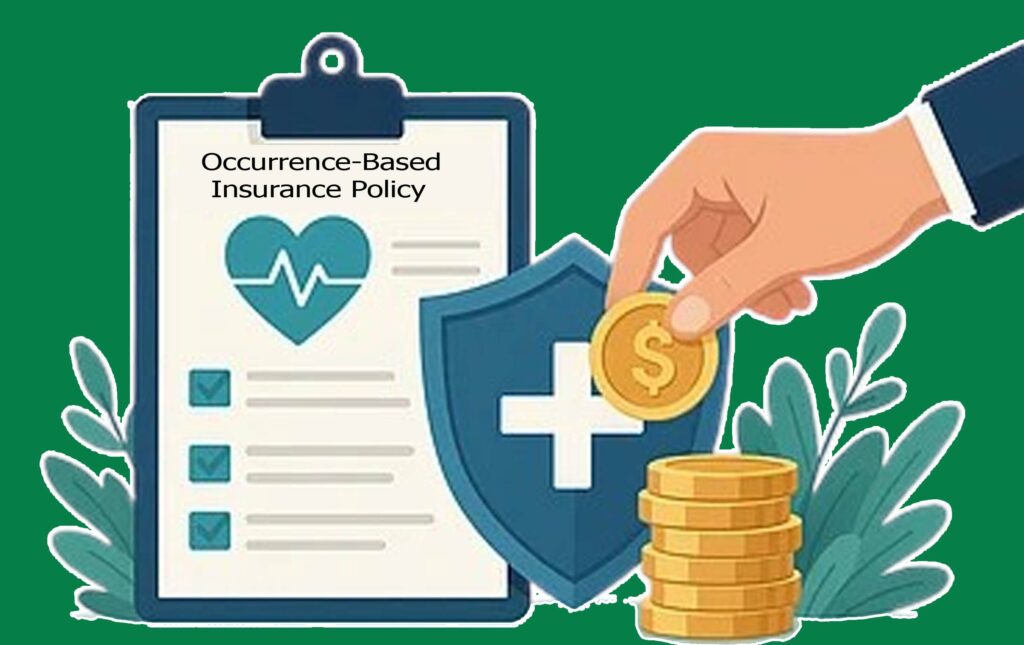Occurrence-based policies cover incidents that may cause injuries or damages that last years after they occur. For instance, if a policyholder is exposed to harmful substances like chemicals, a notable amount of years may pass by before they fall ill. With an occurrence-based insurance policy. These illnesses will be covered irrespective of how long it took to manifest and whether or not the policy is active.

An occurrence-based insurance policy provides coverage for incidents that take place while the policy is in effect, even if the policy has since expired. This means the policyholder can file a claim for damages that occurred during the active period of the policy, regardless of how much time has passed since the policy ended.
How Does It Work?
Insurance companies offer general liability insurance, commercial car insurance, and many others as occurrence-based insurance policies. These policies offer coverage for claims filed against policyholders while the policy is still active.
Therefore, this means policyholders can file a claim even if the policy is not active and it has been several years, as long as the incident occurred while the policy was active. Occurrence-based policies are tailored to financially protect policyholders from incidents that have caused damages or injuries to others years after they occur.
Advantages and Disadvantages of Occurrence-Based Insurance Policy
One major benefit of an occurrence-based policy is that it gives long-term financial protection. As long as the policy was purchased during the time the incident occurred. It allows policyholders to file claims even in the future. Another benefit of this insurance is that the policy costs are fixed. Its premiums do not increase unless the policyholder’s risk profile changes.
The disadvantage of this insurance is that it is more costly than claims-made insurance, and sometimes, it can be difficult to come by. There’s a high risk that the company purchasing this insurance underrates the level of risks or damages that may occur in the future.
What Should I Know About Occurrence-Based Insurance Policies?
Because this insurance has several benefits, some workers may be more determined to take a job that has these benefits when they are given multiple employment opportunities. Aside from this, occurrence-based insurance is different from claims-made policies, which only cover claims made during the policy’s lifespan.
This insurance policy pays for claims made when the policy is active and when it is not, as long as the incident occurs during the policy. There are no limits to the time claims can be filed with this insurance policy.
When Should I Be Aware of an Occurrence-Based Insurance Policy?
An individual who works in a harmful company should be aware of this insurance policy. For instance, a person who works in a chemical company can be exposed to risks connected to chemicals and may not develop illnesses now but may lead to severe health issues in the future. Occurrence-based policies would offer coverage for medical expenses for those health issues.
Occurrence-Based Insurance Policy vs. Claims-Made: What is the Difference?
A claims-made policy only pays for claims that are filed while the policy is still active. After the policy has been canceled or ended, any claims filed will not be covered by this insurance policy. Business insurance policies are typically structured as either claims-made or occurrence-based.
Claims-made policies provide coverage only if the claim is filed while the policy is still active. In contrast, occurrence-based policies offer protection for incidents that happen during the policy period. This is regardless of when the claim is filed. Claims-made coverage is commonly used for risks like errors and omissions in financial statements related to business activities.
Occurrence-Based or Claims-Made Policy: Which is Better?
There is not a single advantage to having either of these policies. You tend to pay more on coverage if you select an occurrence-based policy. Stay reminded that insurance companies list out what is and what is not covered on each policy.
With that information, you can decide which option best suits your needs. For example, business liability coverage is typically only available under an occurrence policy. It’s important to note that occurrence and claims-made policies do not provide the same types of coverage.
Do I need tail coverage if I have an occurrence policy?
With an occurrence policy, you don’t need tail coverage. That’s because any incident that occurred while your policy was active remains covered—regardless of when the claim is filed. Tail coverage simply isn’t necessary in this scenario.
Final Thought
If you have coverage that could cover you from losses during a policy term. Despite the period the claim was made, occurrence-based insurance is a suitable option. Also, you can get coverage against some incidents even if your policy is ineffective. Events like chemical spillage are considered long-tail incidents since it might be many years before the victim notices the cause of the injury or other related harms.



